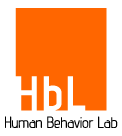Six Tips for Selling to Millennials and Generation Z
Millennials and Generation Z now hold the decision-making keys for most B2B purchases. A recent Forrester Research study of nearly 14,000 B2B buyers found that younger buyers — those born between 1981 and 1994 — prefer digital and self-service purchasing over traditional in-person options compared to their older peers.
Forrester’s “2022 Buyers’ Journey Survey” also revealed more interesting insight into buyer preferences:
• Younger buyers start with sources not controlled by the vendor, citing “technology information websites” as their most impactful interaction type. Older buyers rated “vendor sales in person” as the most impactful.
• Dissatisfaction is more prevalent in younger buyers. Ninety percent are unhappy with the vendor in at least one area, compared to 71 percent of older buyers.
• A smooth purchase process is more important to younger buyers, with 14 percent citing dissatisfaction with the purchase experience, compared to 8 percent of older buyers.
Selling B2B services and products to Millennials and Generation Z requires a different approach than traditional methods. Here are some tips that can help you connect with these younger buyers:
1. Leverage technology: Millennials and Gen Z are digital natives who prefer to use technology to conduct research, communicate and make purchases. Make sure your company has a strong online presence, and use digital channels like social media, chatbots and video calls to engage with these buyers.
2. Be authentic: These buyers value authenticity and transparency. They want to do business with companies that share their values and are genuinely interested in their needs. Show that your company is committed to providing high-quality products or services and building long-term relationships.
3. Provide personalized experiences: Millennials and Gen Z expect personalized experiences, whether it’s via customized products, tailored messaging or personalized recommendations. Use data to consider their preferences and behavior and offer customized solutions that meet their unique needs.
4. Use social proof: These buyers are skeptical of traditional advertising and prefer to make purchasing decisions based on peer recommendations and social proof. Use customer testimonials, reviews, and case studies to build trust and credibility, and leverage social media influencers and user-generated content to create buzz around your brand.
5. Focus on solutions: Millennials and Gen Z are more interested in solving problems than in features and benefits. Focus on which tangible benefits that your product or service can offer, such as time savings, convenience or cost savings, and explain how it can improve their lives or businesses.
6. Make the purchase process easy: Younger buyers value convenience and expect a seamless purchasing experience. Simplify the purchasing process as much as possible, provide clear and concise information, and offer self-service options to help them make informed decisions.
Selling B2B services and products to Millennials and Gen Z requires a customer-centric approach that leverages technology, authenticity, personalization, social proof, solutions and convenience. By following these tips, you can successfully connect with and sell to these younger buyers in the B2B space.
Working on the humans that grow your business | High-performance Human Behavior training | I teach corporations, employees, and executives how to hack into humans using Behavior & Persuasion. I work with Pharma | Finances| Banking |Insurance| Sales teams | Lawyers You and your team are not AI bulletproof without Human Training
